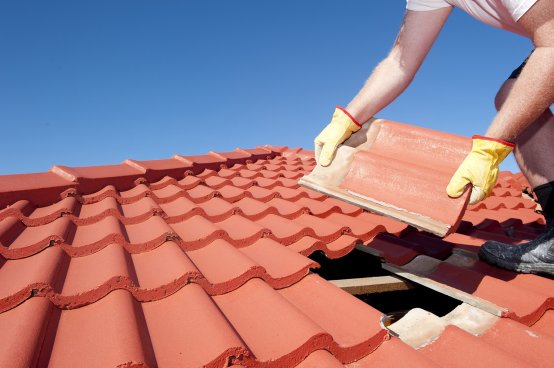Navigating the complex network of UK roofing grants can be overwhelming for homeowners who need financial support for repairs or energy-efficient upgrades. Gaining a clear understanding of the eligibility rules, application process, and available funding sources is essential for maintaining your property while managing expenses wisely. This detailed overview outlines the main government programs, who qualifies for them, and how to successfully access financial help.

Understanding UK Government Roofing Grants
UK government roofing grants are primarily designed to improve home energy efficiency and support households facing financial hardship. The key initiatives currently available include the Energy Company Obligation (ECO4), certain local authority grants, and region-specific home improvement programs. These schemes aim to lower carbon emissions while helping vulnerable residents maintain safe and efficient homes.
Under the ECO4 scheme, major energy suppliers must assist eligible households in improving energy efficiency by providing support for roof insulation or similar upgrades. Many local councils also offer discretionary housing repair grants for essential works, including roofing projects, particularly for older or low-income homeowners.
In addition, some local and regional authorities run special improvement funds for properties in poor condition or areas targeted for renewal. These programs generally do not require repayment, making them an appealing choice for homeowners who meet the qualification criteria.
Who Is Eligible for UK Roofing Grants?
The eligibility rules for roofing grants vary depending on the scheme, but most prioritize financially vulnerable households. Those receiving means-tested benefits such as Universal Credit, Pension Credit, Housing Benefit, or Income Support are most likely to qualify. The ECO scheme also targets residents with disabilities, families with children, or those living in homes with low energy ratings.
Age is another factor considered by many programs, as elderly homeowners are often given priority. Local authority schemes usually require applicants to be property owners (not tenants), to have lived in their home for a minimum period (typically 1–5 years), and to demonstrate financial need.
The physical condition of the home is also evaluated. Properties with structurally unsafe or heavily damaged roofs are more likely to qualify for assistance. An inspection is usually required to confirm the necessity of repairs and assess how energy efficiency could be improved.
However, meeting eligibility conditions does not always ensure funding. Many programs operate with limited budgets, so priority is given to households in urgent need or those expected to achieve the largest improvement in energy efficiency.
How to Apply for Roofing Grants in the UK
Applying for roofing grants usually starts by contacting your local council’s housing department or the organization managing the specific scheme. For ECO-related support, homeowners can reach out directly to energy providers or certified installers who manage applications on their behalf.
Applicants must prepare key documents such as proof of income, benefit statements, ownership papers, and identification. A professional property assessment may also be needed to determine eligibility. Some schemes request quotes from approved contractors, while others assign the work once an application is approved.
Processing times can vary widely, from a few weeks to several months, depending on the funding program’s demand. Applicants should follow up regularly, as additional details or documents may be required during the review process.
Energy-Efficient Roofing and Grant Coverage
As part of the UK’s environmental goals, energy efficiency improvements are a major focus of most roofing grants. Many programs cover roof or loft insulation, which can significantly reduce heat loss and lower energy costs.
Other eligible improvements might include installing reflective or cool roofing materials, green roofs that enhance natural insulation, or solar-integrated systems that generate renewable energy. Some schemes may provide full funding, while others offer partial grants requiring a homeowner contribution.
When applying for these energy-focused grants, applicants should highlight potential energy savings. Properties with poor insulation or outdated roofing materials are more likely to receive approval, particularly if upgrades will boost the property’s Energy Performance Certificate (EPC) rating.
To ensure quality and compliance, all funded work must be completed by approved installers who meet government standards for safety and efficiency.
Exploring Additional Roofing Finance Options in the UK
For homeowners who don’t qualify for government grants or need additional funding to cover full project costs, several financing alternatives exist. Home improvement loans from major lenders often feature competitive interest rates and flexible repayment terms tailored to repair work.
| Financing Option | Provider Examples | Key Features | Typical Terms |
| Equity Release | Aviva, Legal & General | Access property equity with no monthly repayments | Interest accumulates, repaid when home is sold |
| Home Improvement Loans | Nationwide, NatWest | Fixed interest, structured repayments | 1–7 years, £1,000–£25,000 |
| Council Tax Reduction | Local Authorities | Temporary payment reduction during renovation | Relief during works |
| Credit Union Loans | Local Credit Unions | Community-based, often lower rates | Smaller flexible loans |
| Charitable Grants | Turn2Us, Perennial | Non-repayable aid for those in hardship | Varies by charity and eligibility |
Some councils also provide low-interest or interest-free repair loans, particularly for essential work like roof replacement. These loans are tailored to the homeowner’s income level, ensuring affordable repayment schedules.
Older homeowners may consider equity release to unlock the value of their property without selling it. However, this can reduce the estate’s future value and should be discussed with a qualified financial advisor before proceeding.
Charitable and non-profit organizations also play a role in supporting vulnerable homeowners. Charities such as SSAFA (for veterans), Perennial (for those in horticulture), and Turn2Us may offer grants or emergency financial aid for essential home repairs.
Conclusion
Understanding the wide range of available grants and financing solutions enables UK homeowners to make informed decisions when tackling roofing projects. By exploring both government and alternative funding options, it’s possible to reduce costs significantly and ensure a safe, energy-efficient home for years to come.
